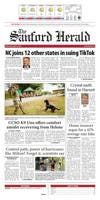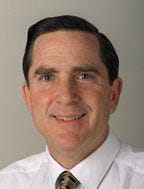Jim and Susie, we hardly knew ye
Memories of two long-ago good friends, lost much too soon
At my age, 75 and counting, it has become a regular sad duty to say goodbye to more and more of my friends, some older, some younger—and somewhat less often, to deliver eulogies at their funerals. For my 50th high school reunion in 2017, I became the official chronicler of my class members; about three dozen of our 150 or so classmates had already passed on by then. Since then, a dozen or so more of them have crossed that final barrier into the great unknown. Each one lost was another small part of my small-town childhood gone forever, even if I had not seen them since we graduated.
But we sturdy survivors stuck together, trying as we can to keep each other informed of each loss. We grieve quietly, and moved on. We now seek to enjoy our more frequent get-togethers as much as we can, even as the pool slowly shrinks. So I am no stranger to deaths of friends, or the news of it. I believe it is a necessary part of our lot as humans to acknowledge and cherish those memories whenever we can; it keeps us alive, in a very deep and abiding sense, as much as we can: to look back and mourn, without dwelling too much on our own mortality.
My many careers since high school have produced separate lots of many good friends, some closer than others, from around the world. Keeping up with them, however, has often become much more of a hit-or-miss proposition. You mean to stay in touch, and for a while, you actually try; sometimes you succeed, sometimes you fail. There is less of a safety net, I guess—without the reinforcement of a regular reunion, sometimes even people whose company you once treasured can move on with their lives and fall off the radar screen.
From college, I brought along a devoted lifelong core of classmates at Chapel Hill; as a journalist, I worked closely with a number of talented reporters who became my abiding friends, and with whom I still correspond regularly. As a Foreign Service Officer, I was often befriended by others on the same challenging, often dangerous, professional journey in countries far from home. Shared suffering can sometimes be as strong a glue as shared joy. Serendipitously, I recently joined a virtual book club with three other FSO’s from my entering class in 1983—which had tried mightily to maintain those connections—to read War and Peace and help each other grasp the complexity of that dense, exhausting novel—based on our own experiences abroad, particularly in Russia and its former satellites. It rolled the years away, in a sense. (We may tackle Homer’s Odyssey next, or Dante’s Inferno—for similar shared reasons.)
After high school or college, of course, there are fewer mechanisms to keep us informed of each other’s whereabouts, marriages, children and sadder events. No Class Notes, as in my UNC alumni magazine. The Internet can provide helpful clues, if you are good enough at using it. So when I occasionally hear the delayed news of death among my long-ago friends, I pause to reflect on what they meant to me, puzzle over why we lost touch, and mourn their loss, much like my childhood friends. Life is so short … so frustratingly short … and once a friend is gone, we cannot call them back; we can only remember them.
So it was with two of my favorite friends from those early days out of college, Jim Mitchell and Susie Sutton. I thought there would always be time; I thought we would grow old together …
* * ** * *
I last saw Susie and Jim on their vacation trip to Washington, D.C., in the mid-1990s, when I was posted to the State Department, just before leaving government service in 1997. We ate dinner in my adopted city, before I took them on a night-time tour of the nearby State Department building, just for fun. By then we had known each other for nearly a quarter of a century, from my early days as a reporter at the Sanford Herald, a small but very busy daily newspaper in central North Carolina.
A more recent version of the front page of the Sanford Herald, where Susie and I met in 1973.
Susie was there during the first months of my tenure, soon leaving to take another job; she was an up-and-coming, award-winning investigative journalist. It was a respectable little newspaper run by a cranky old millionaire who used to come in the newsroom and complain loudly about stories he did not like—particularly that bete noire, “Ramblings,” the dreaded front-page column we had to take turns researching and writing—and still paid us just-above minimum wage in cash, to save the cost of writing checks. Old Mr. Horner was an ornery old cheapskate …
Susie actually liked him, though. She was my age. We were both there for the experience, and little else—obviously, not for the money—and anyone who worked there for long easily became a fast friend. Something about shared misery? Soon enough she would end up in Southern California with her then-boyfriend, Jim, a promising business reporter for the Charlotte Observer in her hometown. Both were great writers, sharp, funny, low-key—and a lot of fun to be with.
My first wife, Helen, and I moved to Sanford in mid-1973. She and I soon became quick friends with Susie, who was a true live wire, vivacious and funny, often wickedly funny, and on weekends, got to know Jim, quieter but just as intense, a Yale graduate from Santa Barbara, a few years older than we were. Both talented writers on a mission. Not surprisingly, they headed to the West Coast in 1975, and settled in the Mission Beach district of San Diego. He came from old money in Santa Barbara—his father co-founded what became United Airlines in 1921—but never put on any airs.
Jim was now a business reporter with the San Diego Union, and Susie was working in public relations, as I recall, but then decided she wanted to change careers. So she started law school at night in San Diego, completing her studies some time later at Santa Clara University, after Jim became business editor of the San Jose Mercury-News.
Mission Beach as seen from the ocean today. Photo courtesy https://missionbeachboardwalk.com/
It was just after they moved to San Diego that they invited Helen and me to visit them. So we did, in the summer of 1975. I was a reporter with the old Fayetteville Observer, and Helen was teaching in the old Fayetteville City School system. As luck would have it, we had received a large bonus in our tax refund—thanks to a onetime federal housebuyer’s rebate—after purchasing our first house in Fayetteville a year earlier. And I had always wanted to see California—she had been there once before, on a family trip, and recommended it highly. The tax rebate just about covered our plane fares and incidentals—we also had to board our two dogs for several weeks—and we were off, still on a budget, true, but thrilled to see somewhere outside North Carolina.
That trip was simply glorious! Jim and Susie were perfect hosts, and the weather was magnificent, as San Diegans always promise, while Mission Beach proved to be a delightfully quirky tourist’s paradise. They had to work, so we spent a lot of free time on the beach, took side trips to La Jolla and to Tijuana, Mexico, where we saw a jai alai match—a lively and fascinating indoor sport!—and my first professional baseball game, complete with the squawking San Diego Padres’ Chicken mascot. We then rented a car to drive up the Pacific coast to San Francisco, stopping along the way at Los Angeles—to see a great aunt in Huntington Park I had never met—and at the famous Hearst Castle and Solvang, the touristy Danish town, to honor my Scandinavian heritage. Jim & Susie flew up and met us there.
During that trip, I got a lot of teasing for my strong North Carolina accent—Susie had worked hard to lose hers, and Jim’s accent, of course, was authentic California—but most Californians were not very tactful or tolerant about that, I found. One of the few black marks against them …
Okay, you try pronouncing it correctly if you don’t know any Spanish …
And knowing no Spanish, I then became the butt of many good-natured jokes for not knowing how to pronounce “La Jolla” when I saw the first road sign. Just like it appeared. And yes, I had heard that city’s name pronounced on TV many times, but my brain did not make the association … Even Helen knew, I suspect, but just giggled after Jim asked me to read the sign out loud …
We stayed with them about two weeks—probably a few days longer than they expected, but if so, they never complained. When the foldout sofa in their one-bedroom apartment eventually became too much for my aching back to bear, I was ready to fly home! We stopped off briefly in Utah to visit my aging grandmother, who at 80, was in a senior-living home in Manti, but convinced my aunt to retrieve her long enough for a dinner out in my father’s hometown, south of Salt Lake City. My great aunt, of course, had already called her …
We did stay in touch that time; we exchanged letters and Christmas cards, occasional telephone calls. So in early spring 1977, when they decided to tie the knot, and Jim and Susie came home to Charlotte for the wedding, Jim asked me to be a groomsman. I still have a picture somewhere—Helen and I did not know another soul at the wedding, although at least no one made fun of my North Carolina drawl this time. It was a small but fun wedding. Susie’s mother, Louise Brennan, was a bigwig in the Democratic party, a state legislator, and an early, committed feminist leader! Her stepfather Stan was a well-known journalist—so the reception was full of sparkling conversation. By then I had left active journalism, and was running my family’s retail firm during my father’s convalescence from illness.
During their honeymoon, they decided to come visit us at our new, larger house in Fayetteville—returning the two-year-old favor!—and because it was still a bit chilly at night in early April, we decided to light a last-of-the-season fire in our fireplace in their honor. Little did I know that since our last fire, many weeks earlier, a baby owl had apparently fallen down the two-story chimney, and had so far been unable to get out. She—or he—was sitting on the damper when I opened it—wisely, before lighting the fire—and came flying out into our family room to sail around the house, before we could manage to get a door open and somehow coax our frantic guest away and out into the yard!
Over the next few years, we went our separate ways, I guess, as young couples on different coasts often do. No more time to travel. Helen and I had a daughter, Fredrika, at the end of 1977, and that same year, Jim and Susie moved to Mountain View, California, when he went to work for the San Jose Mercury-Tribune. When Helen and I split up in 1980, I went back to graduate school, taught news writing for a while, and ended up joining the Foreign Service in 1983.
I married again in 1985; Margaret and I lived in Jamaica, Denmark, Suriname, Singapore, and Latvia before I called it a day, and once again became a writer—back to my original occupation, but this time as a historian and biographer. We stayed in touch, occasionally, but our lives were becoming so busy, and they were so very different from the carefree youngsters we had once been.
Susie had become a very successful lawyer, specializing in bankruptcy, I think, and was president of the Santa Clara County Legal Aid Society for seven years. She was fervently committed to improving the lives of the poor and marginalized—a quest inherited from her mother!! Meanwhile, Jim was flourishing as an editor, with a staff of some 50 journalists, and built quite a name for himself in a very demanding field. They had two sons, I later learned: Jack and Rob. They traveled to Paris often—Susie, a French major in college, adored that city. They co-taught a journalism seminar at Stanford. They were inseparable. Together, they were just remarkable.
When they contacted me about their trip to Washington, I found myself hoping we could reclaim all those lost years. Jim was thinking about perhaps joining the Foreign Service, too—he had lived abroad for a while, in his youth, and spoke fluent Spanish, among other talents—but never followed through. He was intrigued when he found out I was writing my first book, a biography of a forgotten African American congressman from the nineteenth century, and even ordered a copy before it came out in 2001.
But after that, somehow, we lost touch completely. They never got the chance to meet Margaret, who they would have liked a lot, equally lively and sometimes outrageously so. I often wondered why we lost touch. I think now that I finally understand.
I finally Googled Susie’s name last week for any leads, and found, instead, her obituary. I was stunned. It happened about the time we lost touch, I learned, that Susie developed terminal cancer, unspecified nature, and then died in 2002. She was only 52. I cannot find a photo of her, but then none would really do her justice. You had to see her, to sense her vitality and ready wit, flashing eyes. You had to hear Susie laugh to know her …
I almost picked up the phone to call Jim, but prudently Googled him first, instead. Just as well. More sad news. Jim, heartbroken, lasted another three years before he succumbed to cancer himself at 60 in 2005. I cannot find that old photograph of Jim and his groomsmen from 47 years ago, misplaced in all-too-many moves, I fear. This is the only photo I could find, with his shy but ever-friendly smile. A genuine guy, funny, sincere, intelligent, unpretentious. I don’t think I ever saw him in a tie before … except at his wedding …
My old friend, Jim Mitchell, smiling. Gone … but not forgotten. Courtesy San Jose Mercury-News
I found out a lot about them from those wonderful obituaries, things I wish I had known more about when they were alive. There were so many conversations we should have had, and could have had, had we just spent more time together—so many questions a good friend should be able to ask another friend, and listen carefully to the answers. There is still so much I wanted to tell them, but now, cannot.
They never met my daughter, a university professor now, or my three grandchildren; I never met Jack and Rob, who would be in their thirties now, probably both as successful and talented as their parents. Perhaps I will reach out to them, to tell them how much both their parents meant to me, once upon a time, and still do.
I will tell them about their parents’ wonderfully complementary senses of humor, and refreshing frankness, or perhaps about the fancy French restaurant we went to in San Francisco, La Bourgogne—another quirky story about an angry maitre d’ physically manhandling a customer for inappropriate dress [“Zees ees not suit, zees ees blue jeans!”] before relenting and finding him a tie—or about their wedding, perhaps even about the owl that got loose in my family room. There are so many stories …
It’s the least I can do to honor two very dear old friends. Suddenly, I feel so much older, without them, in the back of my mind to keep me young. Forever young, they are now. And I am not. I can keep them alive in my mind, if I try very hard—but only for as long as I have left …
You can help keep their memories alive by reading the obituaries if you have the time. I hope you do. They are worth it … and my two wonderful friends should not be forgotten …
https://www.legacy.com/us/obituaries/charlotte/name/susan-sutton-obituary?id=33006166
https://ahbj.sabew.org/lives/james-j-mitchell-1944-2005-the-san-jose-mercury-news/
Next time: Back to political research—and the Chicago GOP convention of 1904





